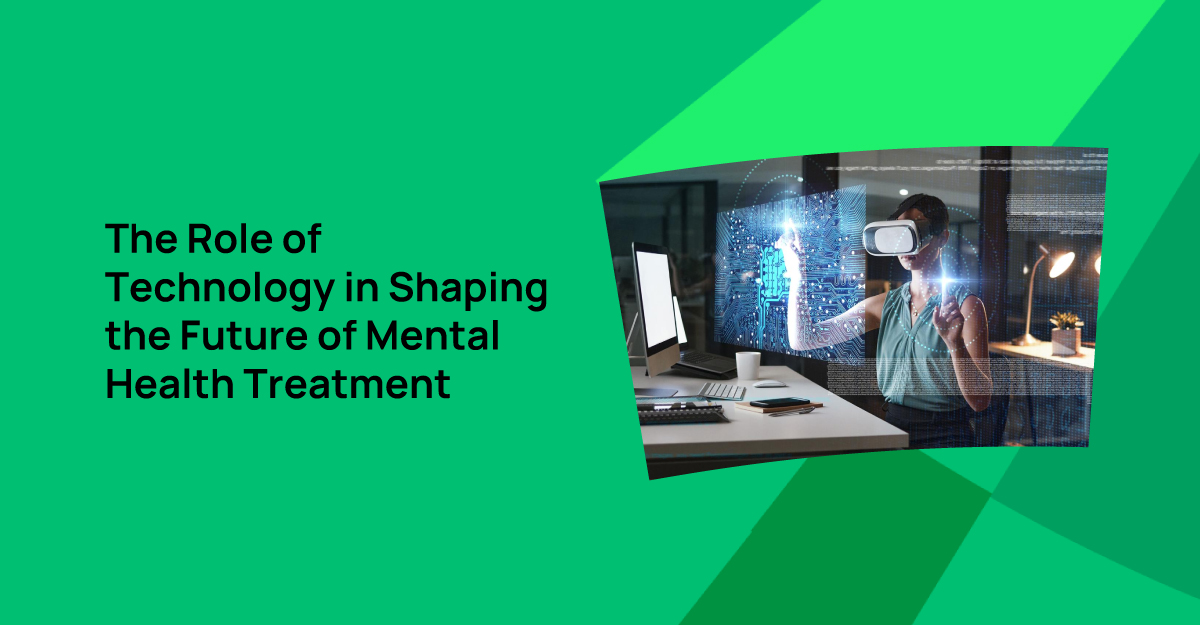Mental health is important to our overall well-being, yet it has often been overlooked. But, with advancements in technology, the way mental health is treated is changing drastically.
In a country like India, where over 1.4 billion people live, making mental health care accessible, affordable, and effective has become a priority.
Technology is crucial in this transformation, bringing innovative solutions to age-old challenges.
This blog explores how technology is shaping the future of mental health treatment and the exciting developments in this space.
The Current Scenario of Mental Health Care
India has come a long way in its approach to mental health. In earlier times, mental health issues were often misunderstood and stigmatized.
Treatment relied on community-based healing practices and religious interventions. The modernization of mental health care began during the colonial era, with the establishment of mental asylums.
After independence, programs like the National Mental Health Programme (1982) aimed to integrate mental health services into primary care. Despite these efforts, many challenges remained, including lack of awareness, limited resources, and stigma around seeking help.
Technology is changing the game, offering tools that make mental health care more accessible and effective for people across all demographics.
How Technology is Changing Mental Health Care
1. Teletherapy: Connecting Patients and Therapists
Teletherapy allows people to receive mental health support through video calls, phone, or even messaging apps. It is especially helpful for individuals living in remote areas or those uncomfortable with in-person therapy.
Studies show that teletherapy is as effective as traditional therapy for treating conditions like depression, anxiety, and post-traumatic stress disorder (PTSD). It also reduces the stigma of visiting a mental health clinic, as it can be done from the privacy of one’s home.
2. AI-Powered Tools for Mental Health
Artificial Intelligence (AI) is making mental health care smarter and faster. AI-based chatbots like Wysa and Woebot offer 24/7 support, providing helpful tips and exercises for managing emotions. These tools analyze users’ inputs and deliver personalized advice, making mental health support accessible anytime, anywhere.
Research has shown that AI-driven platforms can help reduce anxiety and depression symptoms, especially for those in the early stages of mental health challenges.
3. Mental Health Apps: Support in Your Pocket
Mental health apps are becoming a popular tool for managing mental well-being. These apps offer various features, including:
- Self-Management: Users can track their mood, set medication reminders, and manage stress or sleep patterns. Some apps integrate with wearable devices to provide real-time health insights like heart rate or breathing.
- Cognitive Skill Improvement: Apps designed for cognitive remediation help users develop better thinking and decision-making skills.
- Skill Training: These apps teach coping strategies and mental health management techniques using gamification, offering a fun and interactive way to learn.
- Passive Symptom Tracking: Some apps use phone sensors to monitor patterns like movement, social interactions, or even vocal tone. These insights can help detect early signs of mental health issues.
These apps are particularly useful for providing immediate support and encouraging self-awareness.
Current Trends in App Development for Mental Health
App developers are working on innovative ways to address mental health issues. For instance, intervention apps are being created to help people quit smoking or manage conditions like PTSD, insomnia, and eating disorders.
Self-Management Apps
These apps provide users with tools to monitor their health, set reminders, and track progress. They are especially helpful for managing anxiety, depression, and sleep disorders.
Cognitive Remediation Apps
These apps focus on improving thinking skills and promoting healthier thought patterns, making them ideal for individuals with mental health challenges.
Skill Training Apps
Gamification is used to teach coping mechanisms and mental health strategies, offering users a fun way to learn and grow.
Passive Symptom Tracking
Apps with built-in smartphone sensors can gather data about users' behavior and detect signs of mental distress. For example, changes in texting frequency or tone of voice can indicate mood shifts.
Data Collection for Research
Many apps collect anonymous data to help researchers understand mental health trends and develop better treatments.
These tools not only make mental health care more accessible but also help in early detection and personalized treatment.
Emerging Technologies in Mental Health Treatment
1. Virtual Reality (VR)
Virtual Reality is being used to treat phobias, anxiety, and PTSD by creating immersive experiences that help patients confront their fears in a controlled environment.
2. Wearable Devices
Wearables like smartwatches and fitness bands track metrics like heart rate and sleep patterns. These insights can help users manage stress and monitor their mental health.
3. Digital Communities
Online support groups and forums provide a safe space for people to share their experiences and receive emotional support from others.
4. Predictive Analytics
Predictive analytics uses data to identify individuals at risk of mental health issues, enabling early intervention.
Challenges in Technology-Driven Mental Health Care
While technology has opened new doors, it also comes with challenges:
Data Privacy:
Ensuring the security of personal health information is crucial.
Accessibility:
Not everyone can access smartphones or the internet, especially in rural areas.
Human Interaction:
Technology cannot replace the empathy and connection provided by a human therapist.
A Collaborative Approach to Innovation
Research and development teams are working across disciplines to address these challenges.
For example, healthcare software and custom mobile app development create solutions tailored to specific mental health needs.
The Future of Mental Health Treatment
The integration of technology in mental health care has already shown promising results. Looking ahead, we can expect more advancements in:
- AI-driven diagnosis and treatment plans.
- Advanced wearables that offer real-time mental health monitoring.
- Apps that combine multiple features, like symptom tracking, peer support, and cognitive training.
Technology will not replace therapists or doctors but will work alongside them to provide more holistic and personalized care.
Conclusion
The role of technology in mental health treatment is undeniably transformative. Combining traditional methods with innovative tools can create a future where mental health care is accessible, effective, and stigma-free.
With continued investment in research and development, we can tackle mental health challenges more effectively, ensuring a brighter and healthier future for all.



